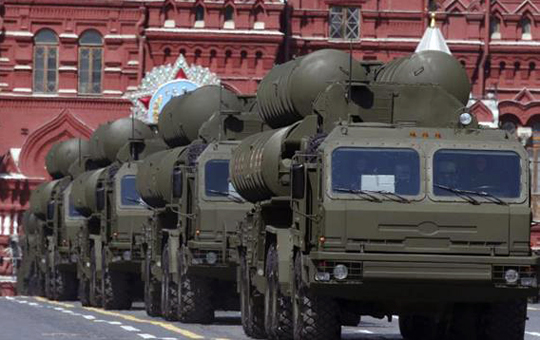Saint Petersburg, Jun 2: Russia is preparing to supply S-400 Triumf anti-aircraft missile systems to India and both sides are discussing the terms of the sale, Russian Deputy Prime Minister Dmitry Rogozin has said.

Precontract preparations underway on the supplies of the S-400 anti-aircraft missile complexes to India, Rogozin said. "Pre-contract preparations are underway on the supplies of S-400 anti-aircraft missile complexes to India," he said.
"It is difficult to say yet how much time they will take. There is an agreement between governments and now we are simply discussing the terms," Russia's official Tass News Agency quoted Rogozin as saying on the sidelines of Prime Minister Narendra Modi's ongoing visit to this Russian city.
India had announced on October 15 last year a deal on the Triumf air defence systems from Russia, worth over USD five billion, and collaborate in making four state of art frigates besides setting up a joint production facility for making Kamov helicopters.
The deals were announced following talks held between Prime Minister Modi and Russian President Putin on the sidelines of the BRICS Summit held in Goa.
In April, Sergei Chemezov, director-general of the Rostec State Corporation had said that the deal for the S-400 anti- aircraft missile systems (AAMS) to India is not yet concluded. "The contract has not yet been signed," Chemezov had said.
The S-400 Triumf long-range air defence missile system has the capability to destroy incoming hostile aircraft, missiles and even drones at ranges of up to 400 km.
India and Russia have been in talks for over a year for the purchase of at least five systems of S-400 that will be a game changer in the region. It is capable of firing three types of missiles, creating a layered defence, and simultaneously engaging 36 targets.
The S-400 Triumph is Russia's latest mobile long-range multiple anti-aircraft missile system, which came into service in 2007. It is meant for destroying aircraft as well as cruise and ballistic missiles, including medium-range missiles, and ground targets.
China was the first foreign buyer of the S-400 anti-aircraft missile systems.





Comments
Add new comment